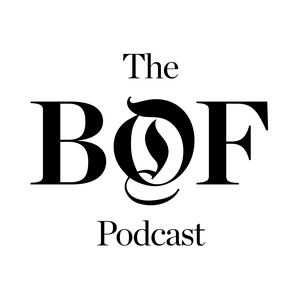Over the past two years, press tours for films like Barbie and Wuthering Heights have become strategic fashion narratives — moments that extend a film’s story far beyond the screen.
At the centre of that shift is Andrew Mukamal, the stylist for Margot Robbie who has become synonymous with what’s become known as “method dressing” … aligning a film’s character, fashion history and brand partnerships into a cohesive red carpet story.
“Method dressing, to me, is really just about putting a bit of extra thought and consideration into what you wear,” says Mukamal. “With modern marketing, the way people consume media and the evolution of the ‘super-press tour’, it’s now one of the options for how to approach this.”
This week on The BoF Podcast, Andrew Mukamal joins BoF founder and CEO Imran Ahmed to speak about the rise of the super press tour, the business dynamics between stylists, studios and fashion houses, and how method dressing has reshaped celebrity marketing.
Key Insights:
Mukamal’s entry into the industry is rooted in assisting and learning on set, from photo shoots to the unglamorous logistics of the fashion wardrobe, and he argues that an apprenticeship remains the clearest training ground. The work is emotional, interpersonal and fast-moving; assistants learn by seeing how decisions get made under pressure. “The only way to really learn how to deal with those things is to be part of a team where you’re seeing all of that happen,” he says. “You have to be very limber and flexible and ready for somebody to call you and say, ‘Maybe we need to pivot.’”
Mukamal defines method dressing as intentionality, not a gimmick. “Method dressing is just about putting a bit of extra thought and consideration into getting dressed – you’re not just grabbing something off a rack.” In his view, most actors are already doing it because red-carpet presentation is fundamentally different from everyday life; the difference is whether you use that gap to build a narrative. “They don’t walk around their normal lives looking anything like what you see them on these public carpets,” he says. Done well, he positions it as performance and persuasion — “a living, breathing billboard” that sustains attention between the trailer and the release, and gives audiences “a daily reminder” of the story they’re being invited into.
The Barbie tour was more than a marketing stunt.. Mukamal went back to the original mood boards of the Mattel designers to find the high-fashion references they used in the 1950s and 1960s. He explains, “Putting myself back in their heads and saying, ‘OK … What was the brand that they were inspired by for this Barbie?’ Now I need to go to that brand and [close] the loop. It was kind of just magic.”
After the global vibrancy of Barbie, Mukamal shifted into a dark, psychological aesthetic to match the tone of Wuthering Heights. He describes this evolution as a “complete gear shift,” returning to his “fashion goth” roots to build a narrative grounded in the 1847 novel’s intensity. By sourcing vintage Victorian accessories and collaborating with designer Dilara Findikoglu, he orchestrated a moment that merged archival history with a “tone of the coolness and, like, darkness” appropriate for the story.
Mukamal frames styling as an apprenticeship-based industry where you absorb judgement, communication and crisis management by watching someone else do it – and then debriefing afterwards. He says, “The only way to really learn how to deal with those things is to be part of a team where you’re seeing all of that happen.” He adds: “Stick around, because you didn’t learn everything in a year or two … I really am a tiny little tadpole in this pond, and I should keep learning while I can.”
Additional Resources:
What Makes a Red Carpet Moment in 2024 | BoF
Have We Hit Peak Red Carpet? | BoF
Case Study | How to Create Cultural Moments on Any Budget | BoF
Hosted on Acast. See acast.com/privacy for more information.


